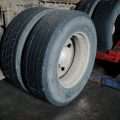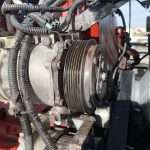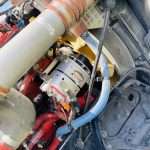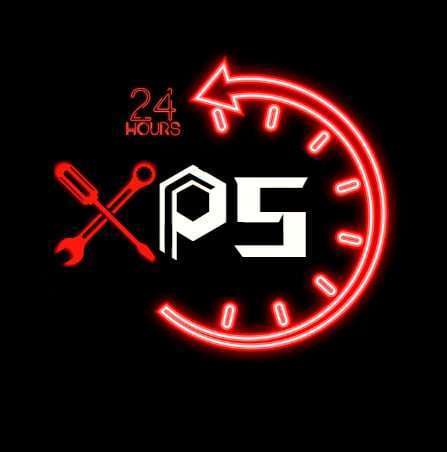Heavy Duty Truck Repair
- By si
- Diesel Repair
- Oct 27, 2024
- 0 Comments
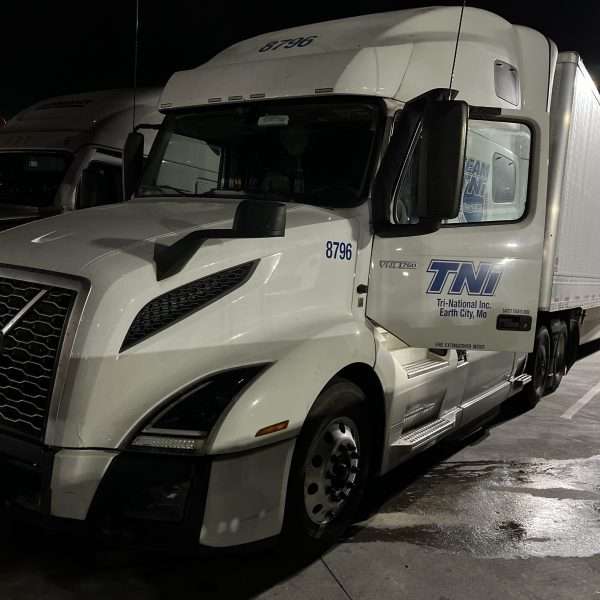
Heavy-duty trucks play a vital role in moving goods across the country, making it essential to keep them in peak condition to ensure reliable performance. However, due to their demanding workload, these trucks are prone to wear and tear that requires specialized repair and maintenance. For truckers and fleet managers, understanding the basics of heavy-duty truck repair can make a difference in safety, efficiency, and operational costs. Here’s a guide to what every driver and fleet operator should know about heavy-duty truck repair.
1. Common Heavy-Duty Truck Repairs
Heavy-duty trucks are designed to withstand long hauls and heavy loads, but even these powerful machines need repairs. Here are some of the most common repair areas:
- Engine Issues: Given the high mileage and hours spent on the road, heavy-duty truck engines can experience wear and tear. Common issues include coolant leaks, oil leaks, and exhaust problems, which need immediate attention to prevent costly damage.
- Brake System Repairs: Due to the immense weight these trucks carry, brake wear is more frequent and severe. Regular inspections and repairs are essential to maintain safe stopping power.
- Transmission Repairs: Heavy-duty transmissions are complex, and repairs can be costly. Issues like slipping gears or difficulty shifting can lead to transmission failure if not addressed promptly.
- Suspension Repairs: The suspension system on a heavy-duty truck supports the weight of the cargo, making it crucial to check for worn shocks, damaged leaf springs, and broken bushings.
- Electrical System Repairs: From malfunctioning lights to dead batteries, the electrical systems in trucks are critical. Repairs may include alternator replacements, wiring fixes, or battery replacements.
2. Preventive Maintenance to Reduce Major Repairs
Preventive maintenance is the best way to avoid unexpected breakdowns and costly repairs. Here are key areas to focus on:
- Regular Fluid Checks and Changes: Engine oil, transmission fluid, and brake fluid are all essential for smooth operation. Regularly checking and changing these fluids keeps components lubricated and running efficiently.
- Tire Inspections and Rotations: Heavy-duty truck tires take a lot of wear, and keeping them in top shape is crucial for safety and efficiency. Regularly inspect tires for uneven wear, maintain correct tire pressure, and rotate tires as needed.
- Brake Inspections: Brakes should be checked frequently due to the high weight trucks carry. Regular inspections help spot worn brake pads and leaking brake lines before they become safety hazards.
- Electrical System Maintenance: The electrical system powers vital systems, from lighting to the truck’s electronic systems. Ensure that all connections are secure and free of corrosion.
3. How to Choose a Reliable Heavy-Duty Truck Repair Shop
Finding a trusted repair shop is key to ensuring high-quality, reliable repairs for your truck. Here’s what to look for when choosing a heavy-duty truck repair provider:
- Specialized Experience: Look for shops that specialize in heavy-duty truck repair and employ experienced technicians. Heavy-duty repairs require specific tools and expertise that may not be available in general auto shops.
- Certifications and Training: Check for certifications such as ASE (Automotive Service Excellence) for truck repair technicians, as these indicate advanced knowledge in truck repair.
- Strong Reputation: Customer reviews and word-of-mouth recommendations are invaluable when choosing a repair shop. Look for shops that are known for their quality of service, fair pricing, and timely repairs.
- Availability of Mobile Repair: Some heavy-duty truck repair shops offer mobile repair services, which are useful for breakdowns on the road. Having a shop that can dispatch a technician to your location can minimize downtime and get you back on the road faster.
4. Signs Your Heavy-Duty Truck Needs Immediate Repair
Sometimes it’s obvious when your truck needs repairs, but other times it’s less clear. Here are some warning signs that shouldn’t be ignored:
- Strange Noises: Unusual sounds, such as clunking, grinding, or squealing, can indicate issues with the engine, transmission, or brakes. Don’t ignore these sounds, as they often indicate a problem that could worsen over time.
- Warning Lights: Pay attention to warning lights on the dashboard. While some may signal minor issues, others (like the check engine light) could indicate a more serious problem that needs immediate attention.
- Excessive Smoke from the Exhaust: If your truck is emitting black, white, or blue smoke, it’s a sign that something is wrong with the engine or fuel system.
- Decreased Power or Performance: If your truck struggles to maintain speed, haul weight, or climb hills, it could be a sign of engine trouble that requires professional attention.
5. Cost Management and Maintenance for Fleet Managers
For fleet managers, managing repair costs is a significant part of maintaining profitability. Here are some ways to optimize repair and maintenance:
- Implement Preventive Maintenance Programs: Regular maintenance helps avoid costly repairs by catching issues early. Set up a schedule for oil changes, tire rotations, brake checks, and other essential tasks.
- Use Maintenance Management Software: Fleet management software can help track maintenance schedules, manage repair histories, and provide real-time updates on the condition of each truck in the fleet.
- Partner with Reliable Repair Shops: Establish relationships with trusted repair shops that offer fair pricing and quality service. Some shops provide discounts or maintenance contracts for fleets, which can save money in the long run.
- Train Drivers on Basic Inspections: Teach drivers to perform daily checks on tires, lights, and fluids to catch minor issues early. This proactive approach can help prevent major repairs.
Final Thoughts
Heavy-duty truck repair and maintenance are critical for safety, efficiency, and cost control. By understanding common repair needs, practicing preventive maintenance, and choosing a reliable repair provider, truckers and fleet managers can minimize downtime and keep their trucks running smoothly. Staying on top of repairs not only protects the truck’s longevity but also ensures the safety of the driver and everyone on the road.



